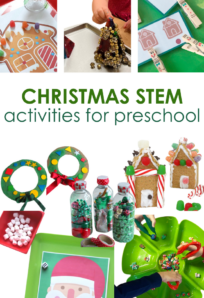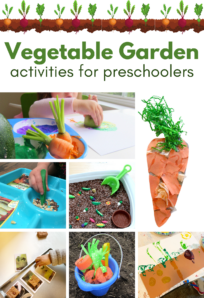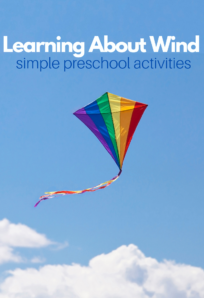Science! How exciting to be here for science week. I’m Jillian, A Mom with a Lesson Plan. Just about any type of learning for kids gets me jumping for joy but I’ll admit, science is a fairly new love for me.
I think what really brought me around was seeing that science ties into so many other aspects of my kids’ growth. Now that they are getting a little older (8 and 6), I can see how they use the basic science method on their own. It’s quite impressive how they are able to predict, analyze and modify their actions easily.
Of course we still enjoy the fun, messy parts of science… but it’s the structure of how to conduct an experiment that I want to come as second nature to my kids. It will benefit them far beyond science class.
Purpose
Before you start an experiment you have to have an idea of what your purpose is, you need a question to ask. Knowing how to ask a question seems simple enough, but it isn’t something that comes naturally to everyone. For most of us, it’s a practiced skill.
Learning how to ask a question
- Figure out the question. Sometimes a very long conversation boils down to one question. Help your kids learn how to pin point it, by following up with a question about the question. “Are you wondering how roller coasters are attached to the tracks or are you wondering how the roller coaster moves along the track?”
- Let the question develop. Often times you know what they are going to ask before they ask it. Give them the space to figure out how to ask instead of skipping ahead to the answer.
- Respect the questions they ask. Show interest and give them sometime to wonder before jumping in with an answer.
Research
Research comes in many, many forms. You can read a book, ask someone who has experience, watch a video, etc. Once your kids know how to ask a question you can teach them how to search out the answer.
Learning how to research
- On the way to the library, talk about which topics they would like to read about. (or study. 😉 ) Remind your little ones about questions they’ve had recently. “Remember how you asked why bugs live under rocks? Maybe you can find some bug books!”
- Google it. Searching the web is pretty easy when you have a good question to start with. Of course they will also need to learn how to decide what’s valid information.
- Encourage them to ask around. I can not tell you how many times I’ve said. “You know what, that sounds like a great question for Grandpa.” (He’s kind of a trivia know-it-all.)
Hypothesis
A hypothesis is an educated guess. So simple and yet a vital skill. Learning how to make predictions and think about possible outcomes based on past experience is huge! Can you imagine how this skill will help them when they are teenagers?
Learning how to make predictions
- Predict while reading. Talk about what might happen next in the story. Were you right?
- Predict while doing a science activity, art activity or just playing outside. “What do you think will happen when you let go of the ball at the top of the slide?”
- Predict… anything. “What do you think the weather will be like tomorrow?” “Do you think we should expect traffic?” Last week we found a tiny cantaloupe in our garden. Since it wasn’t getting any bigger we decided to pluck it and open it as is. It was a simple thing, but we took a moment before cutting in to talk about what we thought we would find inside.
Experiment
When I think of experimenting there are two big things that come to mind. The ability to bring your questions to life and the ability to be persistent without losing patience.
Learning how to experiment
- When your little one has a question, help them figure out how to find the answer. Does it involve collecting materials or is it simply trying something that is already set up.
- Having a space set up with basic art supplies and a junk box will give your kids the space to experiment on their own. (We save toilet paper rolls, lids, boxes and craft scraps.)
- Encourage patience and persistence by allowing down time and showing the kids that YOU can take on mistakes as a learning experience.
Analysis
Collecting data can be done in many different ways. It can be as simple as discussing what you find or as detailed as filling out a spreadsheet. Understanding how to observe, examine and consider your findings is at the core of any analysis. When kids understand how to collect results, the way it’s collected will come easy.
Learning how to record data
- Act like a teacher (because you are!) and set up activities with a little something extra. Ask your kids to draw pictures of what they observe in the garden. Give them a clipboard and a piece of paper to write about the details of a zoo trip. Use simple graphs and charts to have a little fun recording everyone’s favorite meal.
- Have a place for recording. Lot’s of empty notebooks make it easy for kids to grab and write when they observe something interesting. We have notebooks with lines, without lines and some with grids available anytime.
Conclusion
How do we learn from our mistakes? How do we know what really works for us and use that method again and again? We draw conclusions from our experiences.
Learning how to draw a conclusion
- Talk! Talk about why things have happened. What could have changed the outcome?
- Encourage your little scientists to try the experiment or experience again with a little tweak. Did they get the same result?
And because I know how much you love a good book review here at No Time for Flash Cards. I just have to share a new favorite. We just picked it up from the library yesterday and my Little M has been carrying it around all day. Velma Gratch and the Way Cool Butterfly is about a little girl who wants desperately to be known for something. When her class begins studying butterflies and even visits a conservatory she finds just how to make herself stand out. I love, love, love how fun this little scientist is and how she becomes known for something she is good at.
Jillian Riley is a writer who focuses most of her creative energy into her playful learning, playful parenting blog A Mom with a Lesson Plan. She is mom to an almost 8 year old son and a 6 year old daughter. Jillian is passionate about kid activities, learning and creativity! Find her on Facebook, Pinterest and Google.
Tomorrow we wrap Science Week up with a round up of easy science activities for kids. Do not miss it!







Nina says
Okay this post just inspired me to think of a few prompts and questions for my kiddo. I especially like asking them to form hypotheses and predictions. Right now my kid is into the “Why…” stage, so as annoying as it is to answer all his questions, I’m grateful for his curiosity as well.
Jillian says
Ha ha Nina! It’s true those why questions can get a little annoying. I’m so glad you were inspired to come up with a few questions to hand back to them! I like to say “That is a great question, how are you going to figure out the answer?”
Sue-Two Kids Cooking and More says
Very helpful information, Thanks!
Sarah says
Wonderful post! I taught science in my public school classroom and now am homeschooling my kids. My daughter felt the same way about “Velma Gratch”! It went everywhere with us until we absolutely HAD to return it to the library!
Jillian says
I think it may have to go on the Christmas list because she was not happy about it going back to the library! It’s so neat when we find those gems. 🙂
Pragmaticmom says
Love this post on scientic inquiry for kids and the book recommendation. Adding it to my Multicultural Butterfly Books for Kids post http://www.pragmaticmom.com/2013/08/butterfly-books-for-kids/
Jillian says
wow! What a great list of butterfly books! I’ve pinned it and can’t wait to start searching them out at the library.
Gina says
We love science! Mostly I think because I love science and have an enthusiasm for finding out and experimenting and that is what I love this post. We will be hunting the book down.
One thing I do when my kids appear and have a question is type into a folder I have on their lap top in the desk top. That way we don’t forget the question that they asked in the bath, while I was cooking dinner, in the loo at the library (I got a piece of paper from the librarian for that one) etc. I have found that their questions are bubbling around for a while and come out when they have time to chatter on to me which isn’t always the time we can start finding out. I think they like this as it makes their questions seem exciting and important.
Science is amazing it is how everything works. Brilliant post.
Jillian says
That is an awesome idea! There are so many times that I say… Oh we should look into that after school. Or Great question we’ll have to look at that tomorrow morning. It never even occurred to me to write the questions down! I think I’ll get special journal just for that.